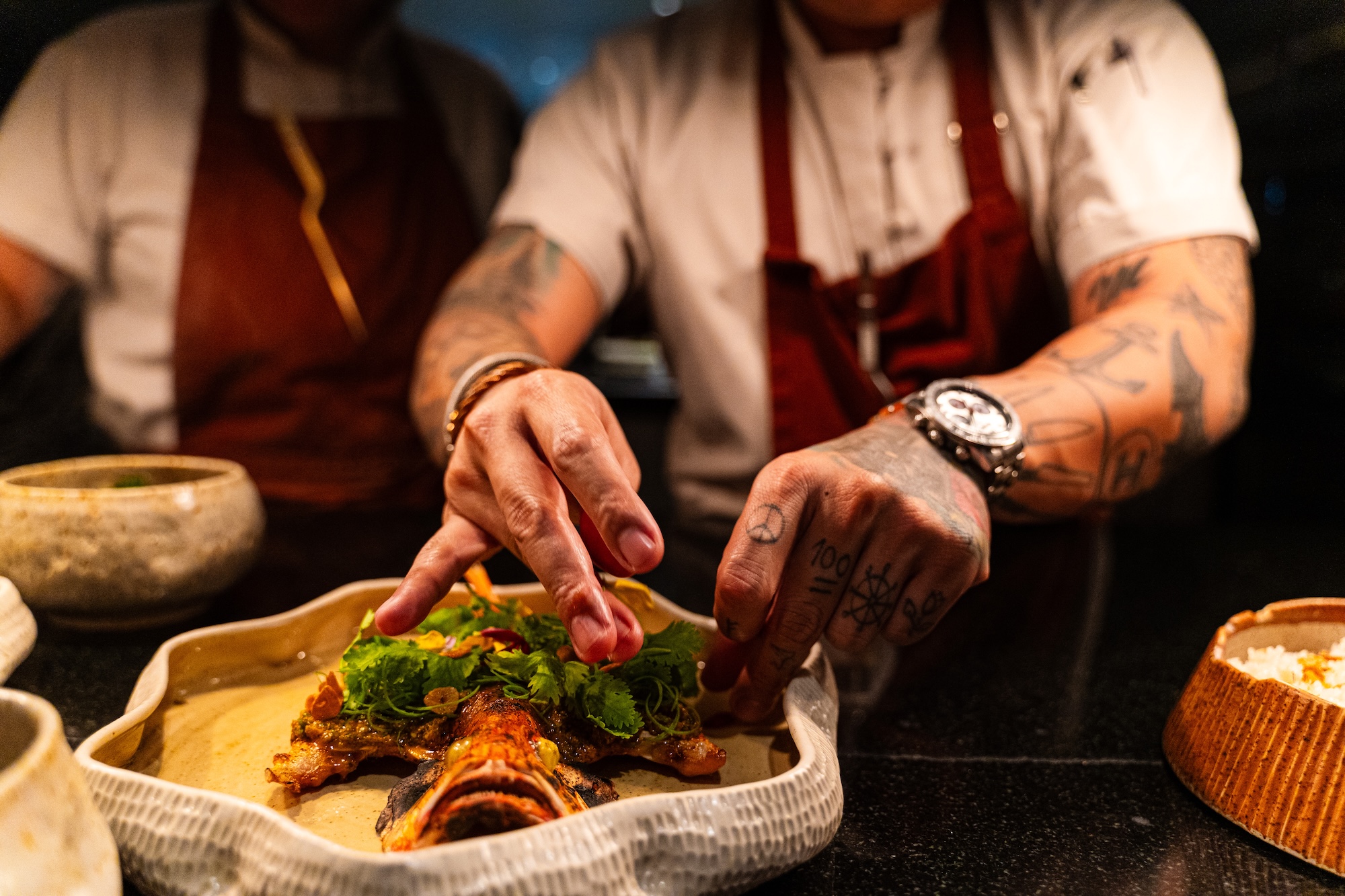I will never run out of stories about my amazing uncle, Peping. Every visit becomes another story to tell. He is 99 and is seldom without family and visitors. Many of his relatives and old friends and even the children of departed friends drop in regularly.
Malen, his oldest daughter, moved in to personally attend to him after a fall that has confined him mostly to bed. His situation is, according to Ding, his youngest brother, the perfect recipe for longevity.
In it Peping thrives as a sweet, refined, witty, thoughtful, pleasant and generous man. Every visit has me adding more adjectives: kind, constant, large-hearted.
A longtime widower, he has managed to carry on with traditions Tita Carmen, his wife, established: Christmas gifts for all us nieces and nephews, and a bushel of mangoes from his farm at harvest time, too. Until this year, he had always celebrated his birthday with a party that doubled as a Reyes-Roces family reunion.
When Dad was confined in the hospital and was home for the rest of his life since his discharge, Tito Peping was there every day visiting, and was there on the day he passed away.
Still lucid
Seeing him still lucid and enthused about life—and the stock market—consoles me, though in a different way. I see Dad and Lolo in him, in the way he looks, talks, jokes and laughs. Like Dad, he also likes to hold hands; his long fingers look and feel like Lolo’s, Dad’s more like Lola’s, shorter.
Many things through the years have endeared him to me. But his love and devotion to his brothers is legend. Every brother has his own tender story to tell about him.
We have our own, his nieces. Cousin Ninit had visited ahead, on her own, with her daughter-in-law, Jean, before she left for Madrid. Sylvia had been wanting to go, too, so we planned our own joint visit as soon as Miguel, Sylvia’s youngest and special child, had a holiday from school, freeing her car for us.
Last Oct. 29, we had the opportunity, and Malen assured us he would be happy to see us. She warned us, however, not to bring cheese or chocolates, bad for his asthma.
Sylvia brought assorted pastries with the lemon eclairs he particularly liked. I brought his favorite dark pumpernickel bread and Italian cold cuts. He was still nebulizing when we arrived—he does it a few times a day. Once done, he was more alert and talkative.
He asked about my brother, Danny, and looked forward to Vergel’s updates and analysis of current affairs; they share a deep interest in history.
Exceptional memory
He was also concerned about other relatives and, for our better understanding, would talk us back to what some of them had gone through. His memory is truly exceptional.
To lighten things up, we asked him why he had stopped dating. He used to manage it between sessions of nebulizing. He admitted he seemed running out of ex-girlfriends. “Most of them have gone ahead.”
He was partial to women who had shared his past. There’s still one left, but, he explained in Spanish, “A veces me conoce, a veces, no.” (Sometimes she recognizes him, other times she doesn’t.)
He looked at us with innocent tragicomic eyes, “Como tambien?”
Before his lunch was served, Malen brought us to the car and handed us special giveaways he had asked her to prepare for us. Tito Peping was sending the car to lay flowers at the grave of his oldest brother Liling, the war martyr, Sylvia’s dad. It was the first time he would not be able to do it himself.
Fearless
Later on the same day, I was to meet another awesome gentleman, Justice Antonio Carpio. His sterling reputation had already preceded him: the only Supreme Court justice who deserved to be chief justice but did not become one for the most ironic of reasons: his fearless independence and patriotism.
It was a rare testimonial dinner, hosted by members of the press, again ironic for someone who, as a rule, refused interviews until much later, when he started championing our sovereignty over the South China Sea.
At 70, he does not intend to go gently into the night. He vows to continue the fight for our territorial rights and is returning to column writing in this paper. When someone asked what we may call him after his retirement, he said, “Tony.”
To think I had almost missed the dinner. My name wasn’t mentioned in the invitation, but a follow-up call from the organizers clarified that I should come, too.
Winnie Monsod, who joined us at the table, kidded me about Christian not being asked and hurting. I kidded back and told her not to tell him I made it. She explained things away nicely: Christian wasn’t in any way part of media.
The testimonials, by journalists Winnie, Ellen Tordesillas, John Nery, Vergel and Florangel Braid, president emeritus of the Asian Institute of Journalism and Communications (AIJ), the host organization, have been posted or printed. Praises, all doubtless deserved, poured. Winnie re-recited them all, summing up with her own word of tribute: “class.”
Mel Velarde, AIJ chair and CEO, had the advantage of being an old friend, who looked up to him as his mentor. Mel had organized the testimonial dinner. It was his bid that had won the Murillo-Velarde map of 1734 at a Sotheby’s auction. It is now being used as Exhibit A against China’s claim to the South China Sea.
As only he could, Mel shared his own encounter with the justice’s uncompromising integrity. He had a clear-cut property case raffled and, as luck would have it, landed in Carpio’s court. Carpio recused himself. He won it, as Carpio said he would, and a huge settlement came his way—three decades later.













































